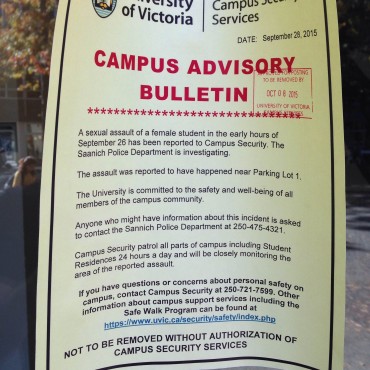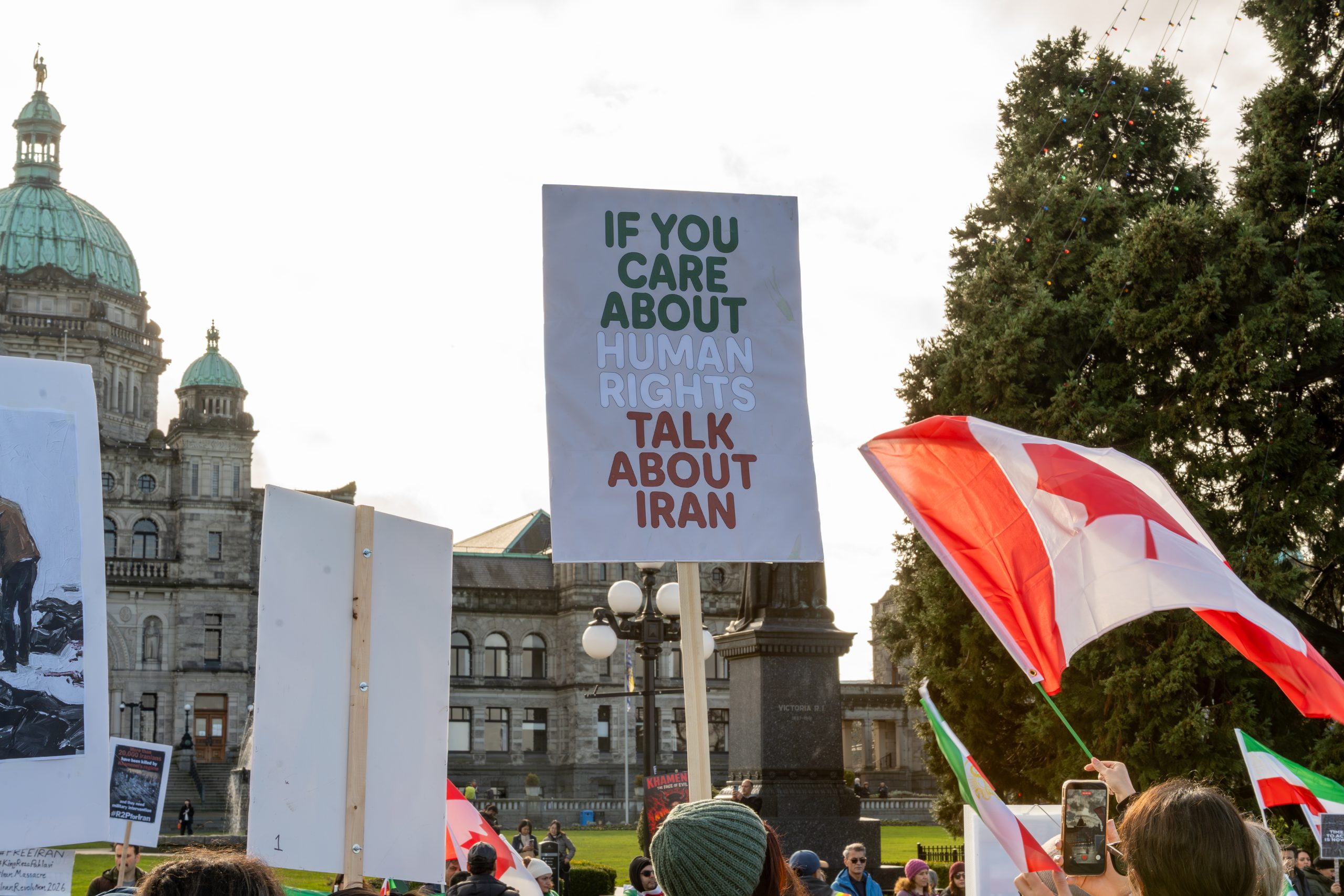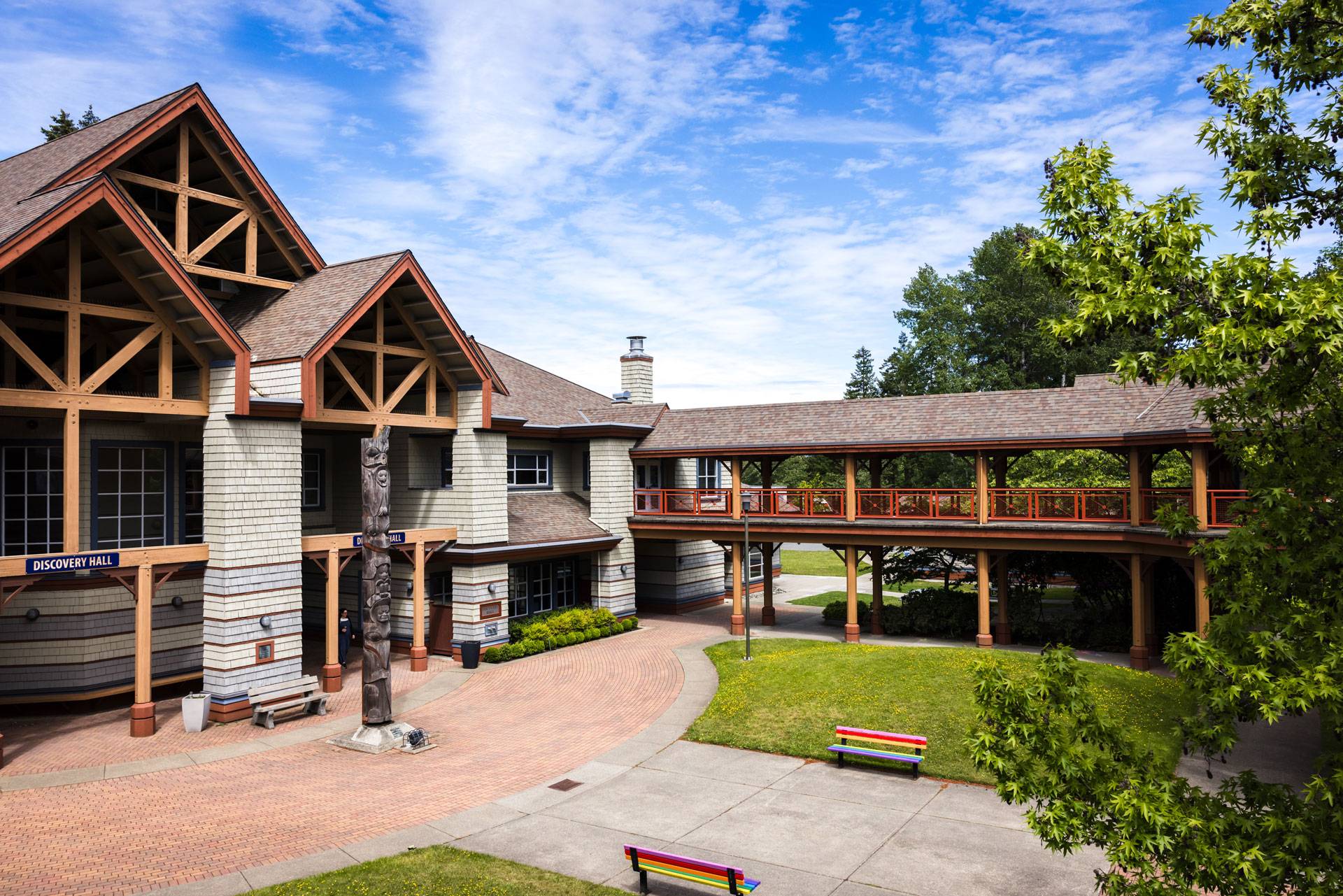Update: On Oct. 2, UVic contacted the Martlet to clarify that the posting on UVic’s homepage was not a media release, and was originally posted on Sept. 27, with an update following on Sept. 28. The posting was updated again on Oct. 2 to include mention of the Anti-Violence Project and other campus support services, and a statement from Residence Services, but removed the statement from UVic President Jamie Cassels.
In light of the sexual assault that occurred on campus early Saturday, numerous UVic groups have responded to the incident, with some taking issue with how the university handled things.
UVic officially responded on Monday, Sept. 28, more than 48 hours after the incident occurred. “This troubling incident of sexualized violence impacts our entire community,” President Jamie Cassels said in a posting published on UVic’s website, which can be read here. [This has since been updated to no longer include Cassels’ statement.] “We are providing support to the student affected and assistance to any other students, faculty and staff who are concerned. We are deeply committed to providing all members of our campus community with a safe, respectful and supportive environment.”
The release continues to state that Campus Security is available 24 hours a day to provide support if needed, and that programs such as the Safe Walk Program are available to students. However, aside from a link to the Student Affairs website which itself contains links to UVic Counselling and Health Services, there is no explicit mention of the support services available at UVic , including those offered through the Anti-Violence Project (AVP) located in the SUB .
That UVic’s response was focused primarily on campus security was concerning, according to AVP Coordinator Carol Bilson.
“I think it was a little disappointing not to see [AVP mentioned,] because we have been working together [with the university in the past],” Bilson said. “I think [the university] did what they probably felt was the best response, in terms of a standard safety response, in terms of security . . . [But] there’s so many other supports on this campus that you can access. If you need support, I don’t think Campus Security is necessarily the first place you would want to go.”
Bilson said that these types of stories tend to focus on what the victim did wrong, or what people can do better to protect themselves in the future, rather than focus on the perpetrators and their behaviours.
She also said what’s often missing in cases like this are people in authority speaking directly to the perpetrators of violence and saying what they do is unacceptable behaviour. “[We need] to have those men [in authority] speak out and say, ‘this is not okay, men.'”
“All of these [incidents of sexual violence] were ideas, before they were actions. And if someone had intervened at the idea part with these fellows, it might’ve [gone differently],” Bilson said.
Indeed, Bilson said it was encouraging to hear that somebody did intervene in the assault, because that means discussions around bystander intervention are working. “In terms of a bystander approach, it’s what we want . . . We want people to recognize a safe situation, but if they feel that they are safe and are able to intervene in a way, clearly we’d like that to happen.”
However, getting the message out is still a work in progress. “[The assault] made [it] clear that our work is really important and that people are not getting the message . . . It’s still an entitlement [to other’s bodies] that people feel they have,” Bilson said.
In order to reinforce the issue of consent on campus, the Let’s Get Consensual (LGC) campaign will be undertaking numerous initiatives, which included tabling at Laci Green’s speech, titled Taking Down Rape Culture, that happened last night at Farquhar Auditorium. The joint UVSS/AVP campaign was also integral to UVic’s Sexual Violence Awareness Week, which wrapped up recently on Sept. 18.
UVSS Director of External Relations Kenya Rogers says LGC campaign representatives will be tabling in the quad “for the next few days,” and that they’ll also be re-launching a Men Against Rape poster campaign starting this week.
“We’ve also put together a list of resources for folks, [including] crisis resources but also different community resources,” Rogers said, as “some people may not be comfortable accessing resources on campus.”
Rogers also mentioned that they will be piloting a bystander intervention training program that will run alongside consent training programs, and if anyone is interested, they can email her at uvssextn@uvic.ca.
Rogers echoed Bilson’s disappointment in UVic’s response to the assault. “For me right now, it’s a lack of response,” she said. Referring to safety bulletins placed around campus and residence housing by the university, Rogers pointed out that “[they just say] an assault happened, investigation is ongoing, and if you need support, it lists Campus Security and the Safe Walk program.”
“If we’re talking about supporting folks who have been triggered by something, or supporting folks who have experienced violence, why is [AVP] not on [the bulletin]?” Rogers said.

Bulletins like this were posted in various locations around campus after the sexual assault occurred. This one was posted on an entrance to Clearihue Building by McPherson Library. Photo by the Martlet.
According to Rogers, Associate Vice-President Student Affairs Jim Dunsdon told the UVSS that AVP was not included on the safety bulletin “because of word count.” When asked for comment, Dunsdon said that the initial campus alerts were meant to inform community members of the assault, provide “guidance to those that may have information . . . to contact Saanich Police,” and to ensure that those who “felt an immediate concern for their personal security were directed to contact Campus Security.”
According to Dunsdon, while the alert did not provide information about other support services, “[the] dispatch handling calls through Campus Security are very aware of the resources available on campus and are familiar in making referrals to these services.”
He concluded: “We have received feedback from the UVSS that they would like these bulletins to be structured as to provide more detailed information about services and supports available. We appreciate their feedback and will take that into consideration.”
Still, Rogers is concerned about the overall response from the university.
“It frustrates me because I see the university playing into the same narratives that actually perpetuate violence, because we refuse to name it, we refuse to look at it as a societal issue, we isolate incidences, and that does not produce a culture shift” she said.
Rogers said part of the responsibility to enact change lies with UVic. “I would love the university to be more proactive and recognize they need to be putting more resources into the work that we do as well, because our work is very strained. And AVP is so short-staffed, [but] they’re [work] capacity is growing and growing, and the need [for them] is growing. And the university could be playing a far greater role in that expansion, in my opinion.”
Bilson said it will take a lot of work, but change is possible if the response to the assault goes beyond punitive measures.
“What we have is a social problem, and you can’t arrest your way out of a social problem.”
If you need support on campus, the Anti-Violence Project is located in SUB B027 and can be reached by phone at 250-472-4388.
If you need help immediately in the community, you can contact the Victoria Sexual Assault Centre at 250-383-3232, the Vancouver Island Crisis Line at 1-800-784-2433, and UVic Campus Security at 250-721-7599.






